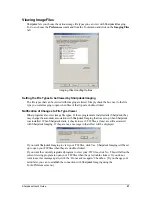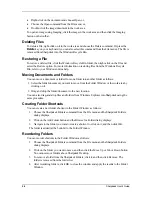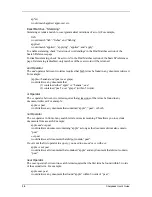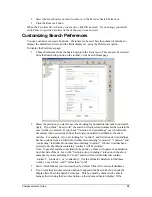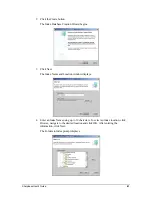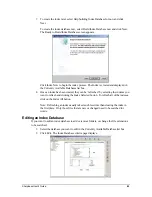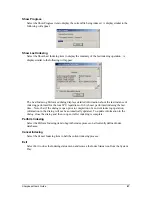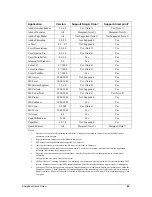
ap*ed
would match applied, approved, etc.
Exact Match vs. “Stemming”
Stemming extends a match to cover grammatical variations of a word. For example,
fish
would match “fish”, “fishes” and “fishing”.
applied
would match “applied”, “applying”, “applies”, and “apply”.
To enable stemming, check ‘Variation of word endings’ in the Find Matches section of the
Search Preferences page.
To disable stemming, check ‘Exact word’ in the Find Matches section of the Search Preferences
page. If stemming is disabled, only matches of the exact word will be returned.
and
Operator
The
and
operator between two terms requires that both terms be found in any document retrieved.
For example:
(apple
or
banana)
and
(pear
near
grape)
would retrieve any document that
(1) contained either “apple”
or
“banana”,
and
(2) contained “pear”
near
“grape” (within 5 words).
or
Operator
The
or
operator between two terms requires that at least one of the terms be found in any
document retrieved. For example:
apple
or
pear
would retrieve any document that contained “apple”, “pear”, or both.
not
Operator
The
not
operator in front of any search term reverses its meaning. This allows you to exclude
documents from a search. Example:
apple
and not
pear
would retrieve documents containing “apple” as long as the document did not also contain
“pear”.
not
pear
would retrieve all documents that did not contain “pear”.
If
not
is not the first operator in a query, you need to use
and
or
or
with
not
:
apple
or not
pear
would retrieve all documents that contained “apple” and any document that did not contain
“pear”
near
Operator
The
near
operator between two search terms requires that the first term be found within 5 words
of the second term. For example:
apple
near
pear
would retrieve any document that found “apple” within 5 words of “pear”.
34
Sharpdesk User’s Guide


